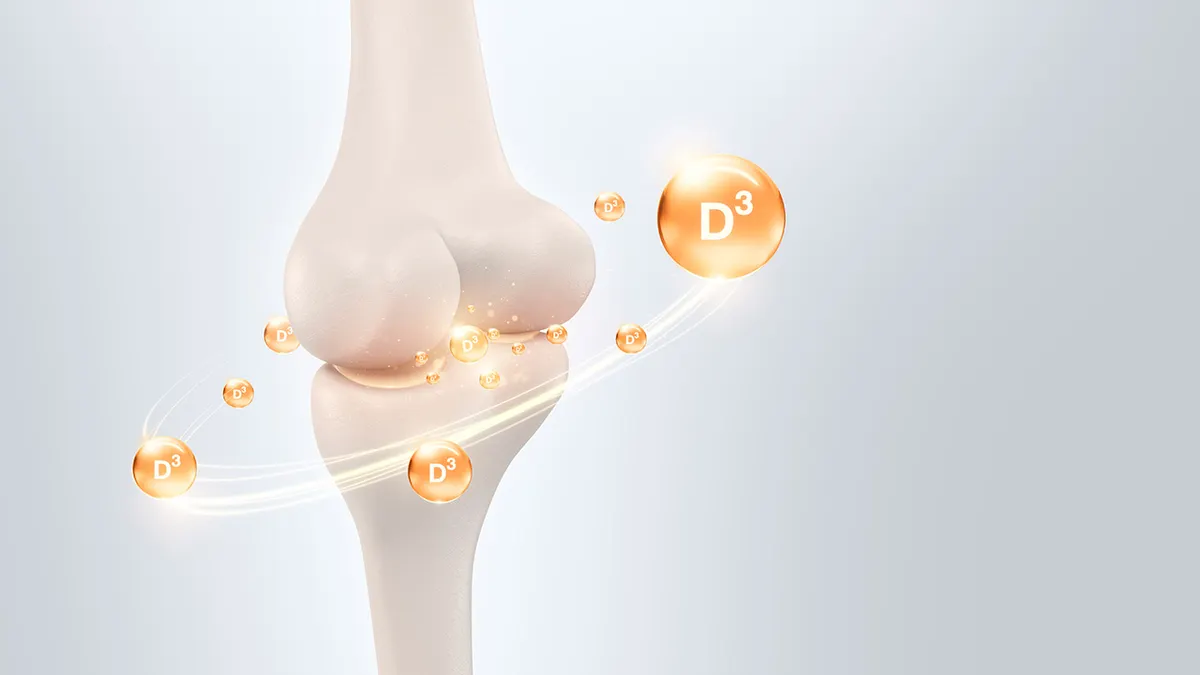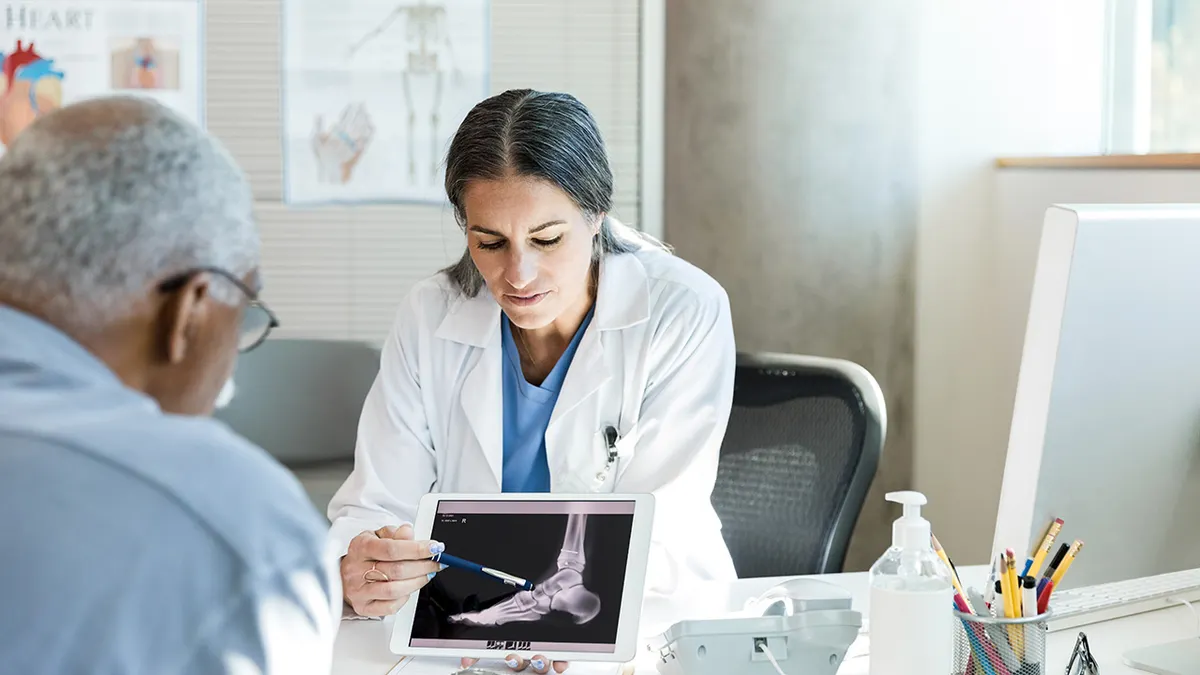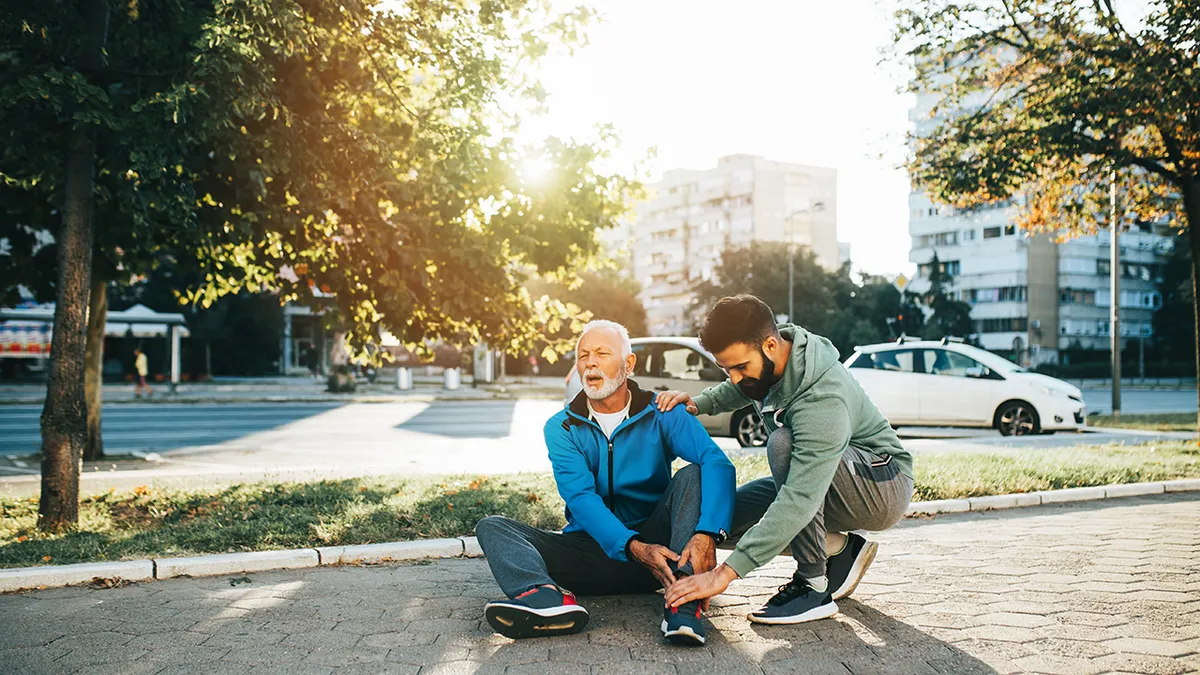
Vitamin D, a nutrient known for promoting bone health, might not be effective in protecting all seniors from injury.
The U.S. Preventive Services Task Force (USPSTF) released a draft recommendation this week advising against the use of vitamin D for preventing falls and fractures in postmenopausal women and men over 60 years old.
A panel of 16 medical experts reviewed the benefits of taking vitamin D with or without calcium supplements for individuals who live independently.
COMMON PAIN RELIEVER COULD CAUSE MEDICAL COMPLICATIONS IN SOME PEOPLE OVER 65, STUDY SUGGESTS
The USPSTF concluded that these supplements offer no "net benefit" for the prevention of falls and fractures based on evidence that vitamin D and calcium don’t lower the risk for generally healthy individuals without other deficiencies or medical conditions.

Vitamin D is a nutrient that is essential for building and maintaining healthy bones, according to Mayo Clinic.
"That's because your body can only absorb calcium, the primary component of bone, when vitamin D is present," that same source wrote on its website.
COSTCO-BRAND COLD AND FLU MEDICATION RECALLED BY FDA: ‘NOT EFFECTIVE’
The vitamin also regulates other cellular functions in the body, and acts as an anti-inflammatory and antioxidant.
"[Its] neuroprotective properties support immune health, muscle function and brain cell activity," Mayo Clinic reports.

Vitamin D is most commonly produced in the body by exposure to direct sunlight, which means levels often dip during the less sunny winter months.
This new and developing research, however, suggests that the supplement won’t necessarily protect the bones of aging individuals.
Katy Dubinsky, a New York pharmacist and founder and CEO of Vitalize, clarified that these conclusions are based on a review of "recent randomized clinical trials," which collectively displayed "no significant difference in fall or fracture risk between those taking the supplements and those who did not."
PANCREATIC CANCER PATIENT SURVIVAL DOUBLED WITH HIGH DOSE OF COMMON VITAMIN, STUDY FINDS
"It’s important to evaluate older adults for any factors, including osteoporosis, that may increase their risk of falls or fractures," she told Fox News Digital.
"While vitamin D and calcium are key for maintaining strong bones, research suggests that routine supplementation in healthy, independent older adults may not effectively prevent falls or fractures."

Dubinsky added that the best way to maintain strong bones and prevent injury is to prioritize physical activity and stay consistent with regular doctor’s visits.
TO SIGN UP FOR OUR HEALTH NEWSLETTER
To protect bone health and decrease the risk of falls, the USPSTF recommends at least 150 minutes of moderate-intensity physical activity per week along with regular strength training exercises.
"Exercises that focus on balance and coordination can reduce the risk of falls, while resistance training strengthens bones and helps prevent muscle loss," Dubinsky said.
For more Health articles, visit foxnews.com/health
About 14 million adults over 65 reported falling at least once in the previous year, according to 2020 data from the Centers for Disease Control and Prevention (CDC).

Unintentional falls caused 78 deaths per 100,000 people in 2021, making them "the leading cause of unintentional injury among older adults," according to the USPSTF.
The task force stated on its website that recommendations made by the agency are "independent of the U.S. government."
"They should not be construed as an official position of the Agency for Healthcare Research and Quality or the U.S. Department of Health and Human Services," they wrote.